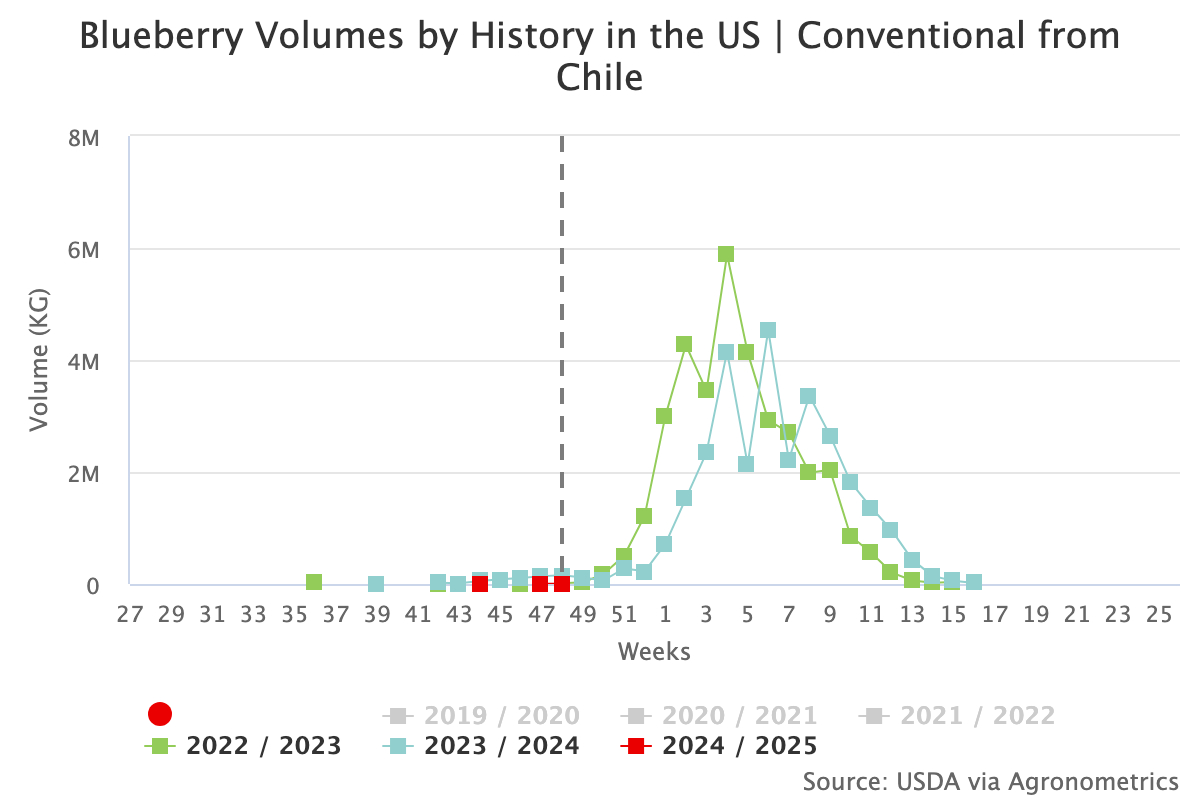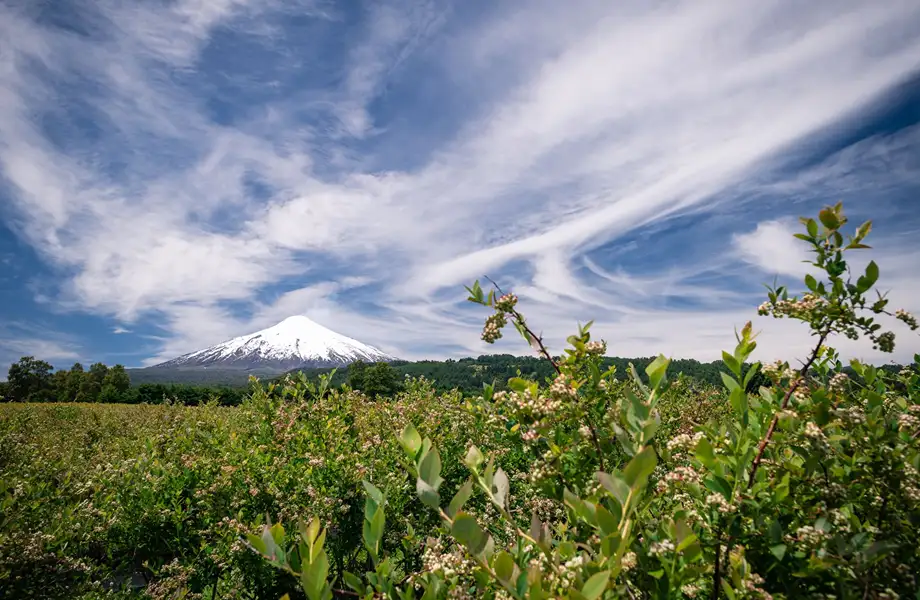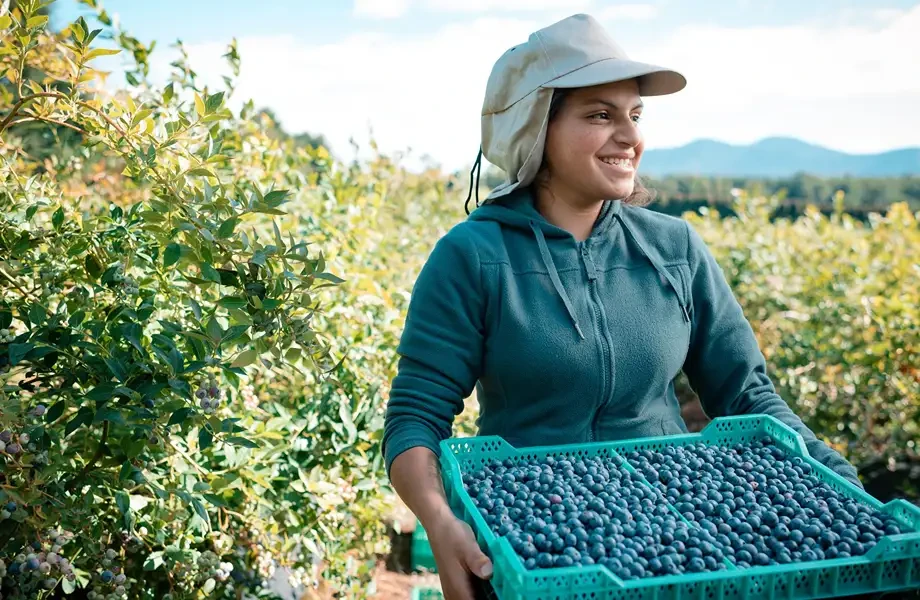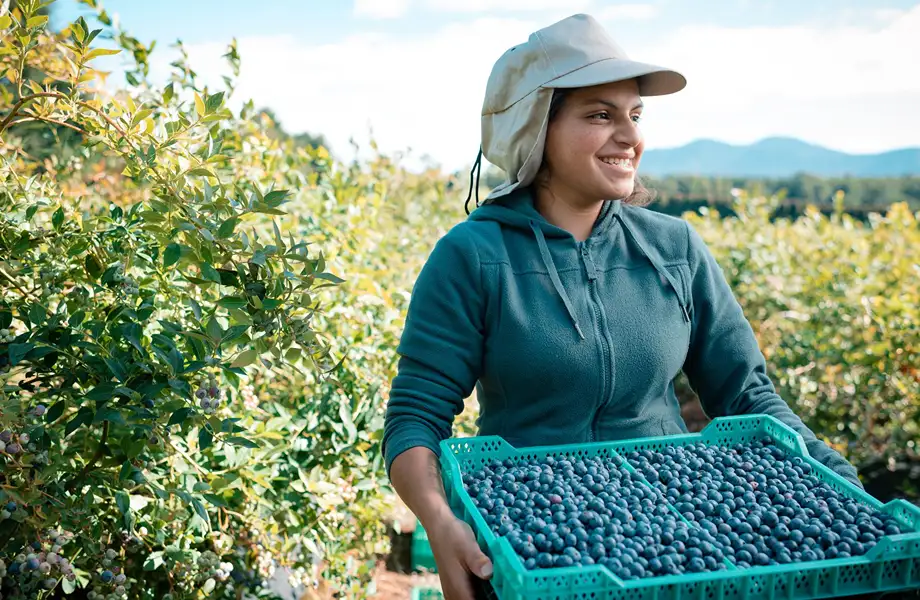```html
In 2008, Chilean blueberry producers began focusing on supplying the US market during its off-season. This strategic move laid the foundation for the industry's expansion.
The formation of the Chilean Blueberry Committee in 2009 marked a pivotal moment, as the organization aimed to improve quality, safety, and consumption. Over the following decade, production skyrocketed, increasing from under 40,000 tons to 117,000 tons during the 2020-2021 season.
In recent years, the global blueberry market has become increasingly competitive, with countries like Peru and Morocco emerging as major exporters. Their geographical advantages and proximity to key markets have shifted dynamics, leading to a decrease in Chile’s fresh blueberry export volumes.
To address this situation, Chilean producers have turned towards frozen blueberry exports, a segment that offers stable demand and fewer logistical challenges. Additionally, varietal renewal has emerged as a critical strategic approach to recovering market share and maintaining high-quality standards.

Varietal Renewal as a Key Strategy
Varietal renewal lies at the heart of Chile’s strategy to compete in the modern blueberry market. By introducing new varieties suited to Chile’s climate, the industry aims to enhance the export mix and meet the evolving preferences of consumers.
This renewal, coupled with investments in post-harvest technologies, has improved logistics and quality, ensuring that Chilean blueberries continue to meet high international standards.
This season, new varieties have taken center stage. By week 47 of the current season, 63% of exported blueberries came from new varieties, compared to 50% in the previous season. These changes represent significant progress in Chile’s efforts to adapt to the demands of an ever-evolving market.
Climatic Challenges and Exceptional Quality
The current season has faced delays due to slower ripening caused by weather conditions. However, as highlighted by Andrés Armstrong, this delay has brought an unexpected benefit: exceptional fruit quality. Weekly quality checks conducted by the Chilean Blueberry Committee have confirmed that this season is setting new records in terms of flavor and overall fruit condition.

This focus on quality has been further strengthened by the introduction of a distinctive seal by the Blueberry Committee. This voluntary label, adopted by committed companies, not only emphasizes varietal renewal but also reinforces Chile’s identity in global markets. The seal reflects a dedication to producing blueberries that are flavorful, consistent, and aligned with consumer expectations.
Looking to the Future
Increased investments in marketing campaigns and promotion are expected to boost the global profile of Chilean blueberries. These efforts aim to sustain and grow consumption by highlighting the unique flavor profile and high quality that characterize Chilean blueberries.
Reflecting on 15 years of development in the Chilean blueberry industry, a story of resilience and adaptability emerges. Through varietal renewal, a focus on quality, and investments in marketing, Chile is well-positioned to face the challenges of an evolving global market.
The commitment of industry leaders and producers ensures that Chilean blueberries will continue to delight consumers worldwide, maintaining their reputation as a premium product.
The 2024-2025 season, although marked by delays, has already highlighted the fruits of these efforts. With a record-quality harvest and a growing share of new varieties, the future of Chilean blueberries looks promising, paving the way for continued success in the years ahead.
Source: Agronometrics
Italian Berry - All rights reserved
```






